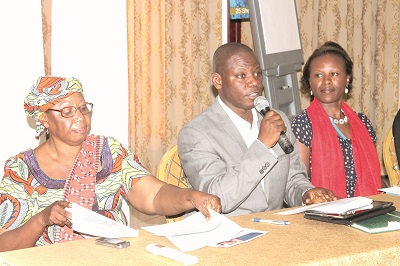Ghana drafts plan to end neonatal deaths
 Ghana is drafting an action plan that will help end preventable deaths among newborn babies.
Ghana is drafting an action plan that will help end preventable deaths among newborn babies.
Advertisement
Dubbed “Every Newborn”, the plan will focus on newborn health and identify actions for improving their survival, health and development.
To that end, the Ghana Health Service (GHS), the United Nations Children’s Fund (UNICEF) and the World Health Organisation (WHO), together with other partners, have held a national stakeholders meeting in Accra to review progress made in the country’s implementation of newborn and child-health programmes at both the national and regional levels.
At the end of the meeting, the participants will come up with a co-ordinated national strategy for the accelerated reduction in neonatal and child mortality.
The UNICEF Country Representative in Ghana, Ms Susan Namondo Ngongi, commended the government for its efforts to reduce maternal and child deaths in the country.
The meeting, she said, would contribute to a national scale-up plan which was in line with the global action plan to increase access to quality interventions to improve newborn care.
To achieve that, she said, it was critical that all sectors, including education, water and sanitation, roads and transport, were co-ordinated to take consolidated action to ensure that newborn babies survived and thrived in the country.
She gave an assurance that UNICEF, together with other UN agencies, was committed to partnering Ghana to fulfill its pledge to accelerate a reduction in preventable newborn deaths.
The Chief Director of the Ministry of Health, Madam Salimata Abdul-Salem, on behalf of the Minister of Health, Ms Sherry Ayittey, said Ghana had instituted interventions to reduce neo-natal deaths and outlined some as skilled care at the time of birth, effective neonatal resuscitation, early initiation of breastfeeding and exclusive breastfeeding.
However, she said, there were still major gaps in access to and utilisation of those interventions, as well as the quality of service provision.
According to her, the 2011 Multiple Indicator Survey showed a decline in coverage for some key child-health interventions; a situation which, she said, should be of great concern to stakeholders.
By Rebecca Quaicoe-Duho




